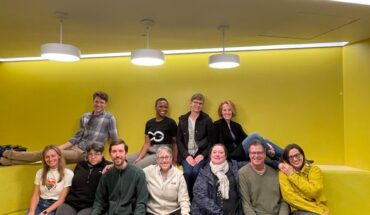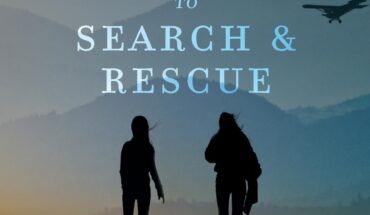My high school best friend, Jen, and I were discussing books recently. She started telling me, with great enthusiasm, about a novel she had just read that she thought I would like. But she stopped mid-sentence and said, “Oh, never mind. You won’t read it anyway.”
I was taken aback because she has a pretty good sense of what kinds of books I like. We discuss books almost every time we talk on the phone. (She lives in Seattle. I live in Boston.) We share book recommendations all the time, and she obviously loved this book. Why didn’t she think I would read it?
“You never read anything I recommend,” Jen said.
My initial response was to think, That’s ridiculous. Of course I do. I read a ton of books. She recommends titles to me all the time. But as I thought about it, I couldn’t think of a single title that she had recommended to me that I had actually read, even though she had read numerous books I had suggested to her.
I felt terrible. I had no idea why I had never read any of her recommendations. I thought about it for days. I had purchased several books she had suggested with every intention of reading them, but for some reason, none of them had made it to the top of my ever-growing To-Be-Read pile.
I did a mental inventory of the all the books I had read in the past year and noticed some distinct patterns. With a few exceptions, most of the titles had been written by authors I have some personal connection to. Here’s how most of my reading list breaks down.
1. I read books by people I know.
I’m very involved in GrubStreet, a large writers’ organization in Boston. I’m a graduate of GrubStreet’s Novel Incubator, a year-long novel intensive. Many graduates of the Incubator have gone on to publish books. When I read them, I feel like I have a little window inside my friends’ heads. I sometimes hear the words in the author’s own voice. It’s a satisfying feeling to read a book by someone I know, then tell them how much I enjoyed it. I’ve been amazed at the talent of some my fellow Novel Incubator grads, including Louise Miller (The City Baker’s Guide to Country Living) and Kelly Ford (Cottonmouths), who wrote two of my favorite reads of 2017. I’m on pins and needles waiting for their second novels to come out. It’s not just the students at GrubStreet. After taking a GrubStreet class taught by Ben Winters, I started reading his novels, and they have become some of my favorites as well. That personal connection pushes books up my TBR pile.
2. I love Boston. I love Massachusetts. I love New England.
I wasn’t born here, but I’ve called Boston home for twenty-two years. Even if I don’t know the author, I gravitate toward literature set in New England. A good example is The River at Night by Erica Ferencik, which takes place in wilds of Maine. I loved Erica’s use of nature to create suspense. I had never met her, but I couldn’t resist writing to her to tell her how much I enjoyed her book. She wrote back and we have since become friends. I just finished reading Heart Spring Mountain, a 2018 debut by Vermont’s Robin MacArthur. Robin writes gorgeous prose about mountains, weather, climate, nature, family, and how they are all connected. I’m absolutely in love with this book and can’t recommend it enough. (Please go buy it immediately.) In 2017, I picked up Marriage of a Thousand Lies by S.J. Sindu, who now lives in Florida, but once lived in my current neighborhood and used it as a backdrop for her novel. I loved this book for so many reasons.
3. I love New England authors, even if they don’t write about New England.
My current obsession is Cambridge, Ma. author Mira T. Lee’s Everything Here is Beautiful. This rich novel gutted me with its clear-eyed, stunning rendering of a woman with mental illness, and how it effects the people around her and their relationships. (I implore you, please check out this book. Right now. It’s that good.) Oh, and Alice Hoffman. I don’t have enough words to explain how much I adore her books. And Celeste Ng. I could go on and on. Wait, I forgot I forgot Tim Weed. I’m going to stop now. There are just too many local authors I love to list them all.
4. I seek out authors I’m connected with through professional organizations.
A great example is Cynthia Swanson, whose second novel The Glass Forest just came out this month. (Her debut The Bookseller was recently purchased by Julia Roberts, who plans to star in the upcoming film adaptation.) When I was just getting started as a writer, I connected with Cynthia through the Women’s Fiction Writers Association. She offered me support and guidance. She talked me through the trauma of querying and pitching my book. I’ve never actually met Cynthia in person, but her kindness made me want to read her books. I quickly fell in love with her literary suspense. Similarly, I connected with Katie Moretti, a best-selling domestic suspense author, through the same writers’ organization. Katie gave me an important pep talk on believing in myself and how to talk to literary agents. Without me asking, she volunteered to read and blurb my novel for me. Any new author will understand what an incredible gift this was. I’ve learned something from both Katie’s and Cynthia’s writing. I’ve also learned a lot from them about how to be a good literary citizen. And just as importantly, I love their books.
After examining my reading habits, I realized I have become a bit myopic in my literary selections. I never intended to limit myself to local authors or authors I know. It just happened. It feels good to sink into a novel with a familiar setting, or to read a book written by a friend, teacher, or classmate. This isn’t to say I never read other authors. Some my favorite books of the last few years are by authors such as Nicole Dennis-Benn, Peter Geye, Laura Pritchett, Jesmyn Ward, Jane Harper, and Emily Fridlund, none of whom fall into the categories I listed above. But they are the outliers.
I’ve come to think of the abundance of literature coming out of New England as my literature shed, the way people discuss watersheds and foodsheds that provide water resources and nourishment to a geographic area. In the same way that vegetables grown in my own garden or at a local farm taste better than the grocery store variety, books with local or personal connections please my reading palate.
I have a very non-scientific theory that locally grown food tastes better because the produce is literally created out of the soil I walk on, the dirt under my fingernails. These fruits and veggies are part of my landscape and my biology. I breathe in the air that these plants breathe out. We are constructed out of the same particles. Maybe my body somehow recognizes this on a molecular level and makes me crave the corn I grow myself over the ears I find in a grocery chain. It makes me unable to resist the perfect eggplant at the farmers’ market that I would probably would not even notice in a grocery store.
And maybe that’s also why I gravitate toward books that grow out of the land and the people I know. Something in their words, in the settings they choose, in the characters and dialog they the create, resonates with me.
Just as I will never stop lusting after homegrown tomatoes, I will continue to seek out local literature and read the books my friends write. But now that I’m aware of my inclination to read mostly local books, I’m making a resolution to expand my reading list a bit. As much as I love my New England literature shed, I’m missing out on so many other books. This doesn’t mean I’ll read fewer local books, it means I intend to make room for more books.
So, Jen, do you have any recommendations for me?




1 comment